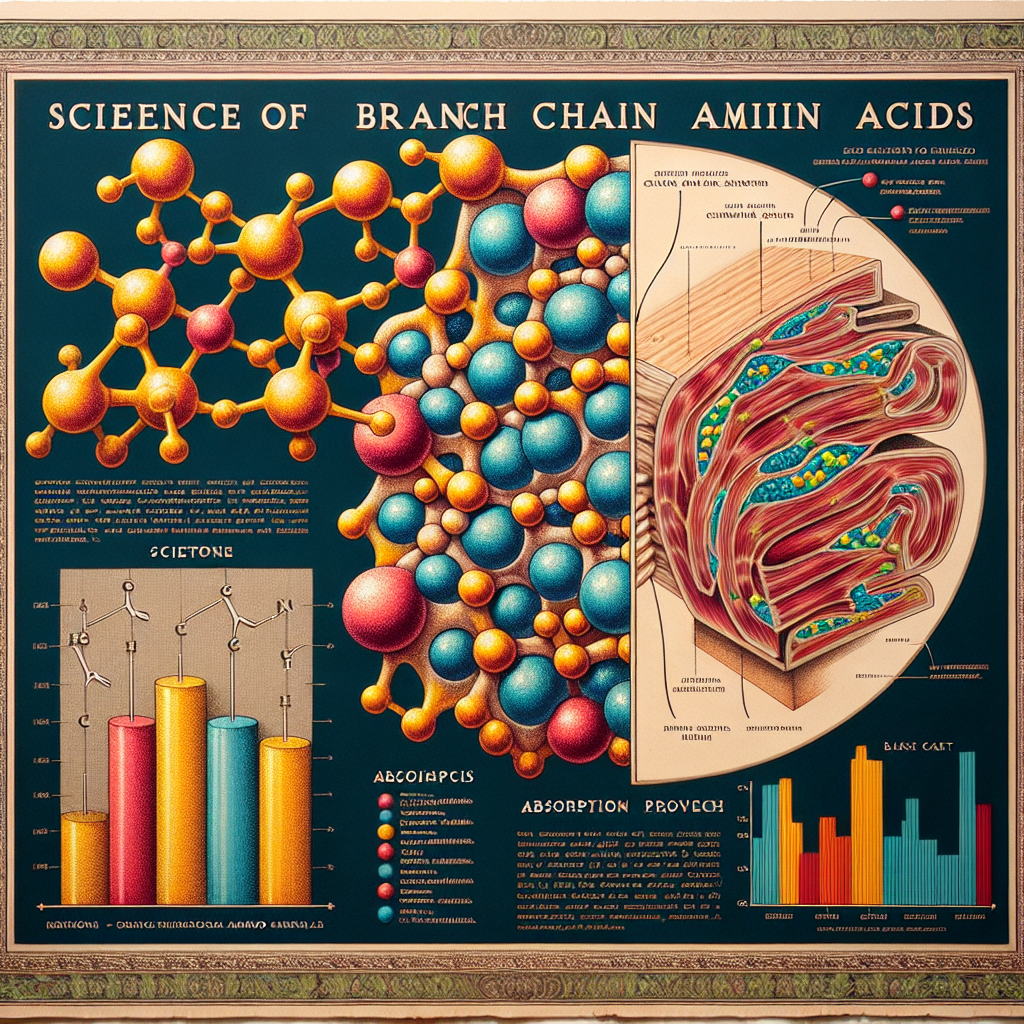
An Introduction to the Excitement Surrounding BCAAs
Hello, health aficionados! Today, we're taking a closer look at the buzzworthy Branched-Chain Amino Acids, or BCAAs. If you're even a tad interested in fitness or nutrition, you've likely encountered this term as often as you'd see a jogger in the park. So, what exactly are BCAAs, and do they live up to the hype? We're here to break down the science, investigate their benefits, and share some practical advice on how to incorporate BCAAs into your regimen. Strap in, and let's begin this amino-powered adventure together!
A Closer Look: What Exactly Are BCAAs?
BCAAs, short for Branched-Chain Amino Acids, consist of three indispensable amino acids: leucine, isoleucine, and valine. They're termed "essential" because our bodies can't produce them; we must obtain them through our diet or supplements. These particular amino acids are unique due to their branched molecular structure, distinguishing them from other amino acids.
So, why exactly are BCAAs so important? They play a critical role in protein synthesis, energy production, and muscle recovery. In essence, they serve as building blocks for our muscles, aiding in the repair and growth of muscle tissue. Hence, their sterling reputation among fitness enthusiasts!
The Ingredients and Benefits of BCAAs
Key Components
Let's break down the three amino acids that make up BCAAs:
- Leucine: This notable amino acid is celebrated for its ability to stimulate muscle protein synthesis, effectively kickstarting the muscle-building process.
- Isoleucine: Besides aiding in energy production, isoleucine helps regulate blood sugar levels and supports muscle metabolism.
- Valine: Valine is instrumental in energy provision and muscle tissue repair, making it essential for recovery.
Backed by Science: The Benefits
What does the research say? Numerous studies underscore the efficacy of BCAAs:
- A study in the Journal of the International Society of Sports Nutrition noted that BCAAs can reduce exercise-induced muscle damage and promote quicker recovery.
- Research in the American Journal of Physiology highlighted that leucine significantly boosts muscle protein synthesis, crucial for muscle growth.
- Findings from the European Journal of Applied Physiology indicated that BCAAs could mitigate exercise-induced fatigue, enabling athletes to train longer and harder.
How to Use BCAAs: Practical Tips
Thinking about giving BCAAs a go? Here are some tips to maximize their benefits:
Dosage and Timing
For best results, consider taking 5-10 grams of BCAAs before or after your workout. Some enthusiasts prefer sipping on a BCAA drink during exercise to keep their muscles energized.
Advice on Cycling
Like any supplement, it's critical to cycle your BCAA use. Consider a period of 8-12 weeks of use, followed by a 4-week break. This approach helps prevent your body from becoming too accustomed to the supplement, keeping it effective.
Advantages and Side Effects: BCAA Pros and Cons
Core Benefits
- Boosted muscle growth and repair
- Reduced exercise-induced muscle soreness
- Decreased workout fatigue
- Enhanced endurance and performance
Possible Side Effects and Precautions
BCAAs are generally safe, but here are some things to keep in mind:
- Excessive intake may lead to gastrointestinal distress.
- Some individuals might experience nausea or headaches.
- Consult a healthcare provider if you're pregnant, nursing, or have pre-existing health conditions.
Comparison with Other Supplements
What Makes BCAAs Unique
Compared to other amino acid supplements, BCAAs are highly effective at promoting muscle protein synthesis and reducing muscle soreness. While supplements like whey protein contain BCAAs, taking them in an isolated form provides more targeted benefits.
Pros and Cons Relative to Alternatives
- Pros: Rapid absorption, targeted muscle benefits, suitable for those who are lactose-intolerant or vegan.
- Cons: Often pricier per serving than protein powders and might lack a complete amino acid profile.
Personal Experience and Reviews
User Success Stories
Consider Maria, a fitness enthusiast from Berlin: "Adding BCAAs to my regimen has been revolutionary. I recover quicker, and my muscle soreness has noticeably decreased."
Expert Opinions
Dr. Hans Müller, a sports nutritionist, advises: "BCAAs can be extremely beneficial, especially for those aiming to maximize muscle recovery and lessen workout fatigue. However, it's crucial to use them properly and not depend solely on supplements."
Frequently Asked Questions (FAQ)
Are BCAAs safe for children?
While BCAAs are generally safe, it's always prudent to consult a pediatrician before administering any supplements to children.
Can I take BCAAs on rest days?
Definitely! Consuming BCAAs on rest days aids in ongoing muscle recovery and maintenance.
Do I still need protein powder if I take BCAAs?
Yes, protein powders offer a complete amino acid profile, essential for overall wellness. BCAAs should complement, not replace, your protein intake.
Conclusion: The Final Word on BCAAs
And there you have it! The science behind BCAAs shows these branched-chain amino acids are powerful allies on your fitness journey. From bolstering muscle growth to reducing fatigue, BCAAs offer a lot. However, remember they're not a cure-all. Combining them with a balanced diet, regular workouts, and a healthy lifestyle will yield the best results.
Looking for more tips on supplements and wellness? Explore our other articles on HealthyHerbology.com and stay updated with the latest in health and fitness innovations. Happy training!



